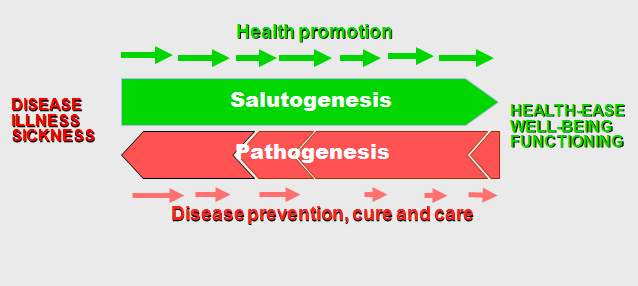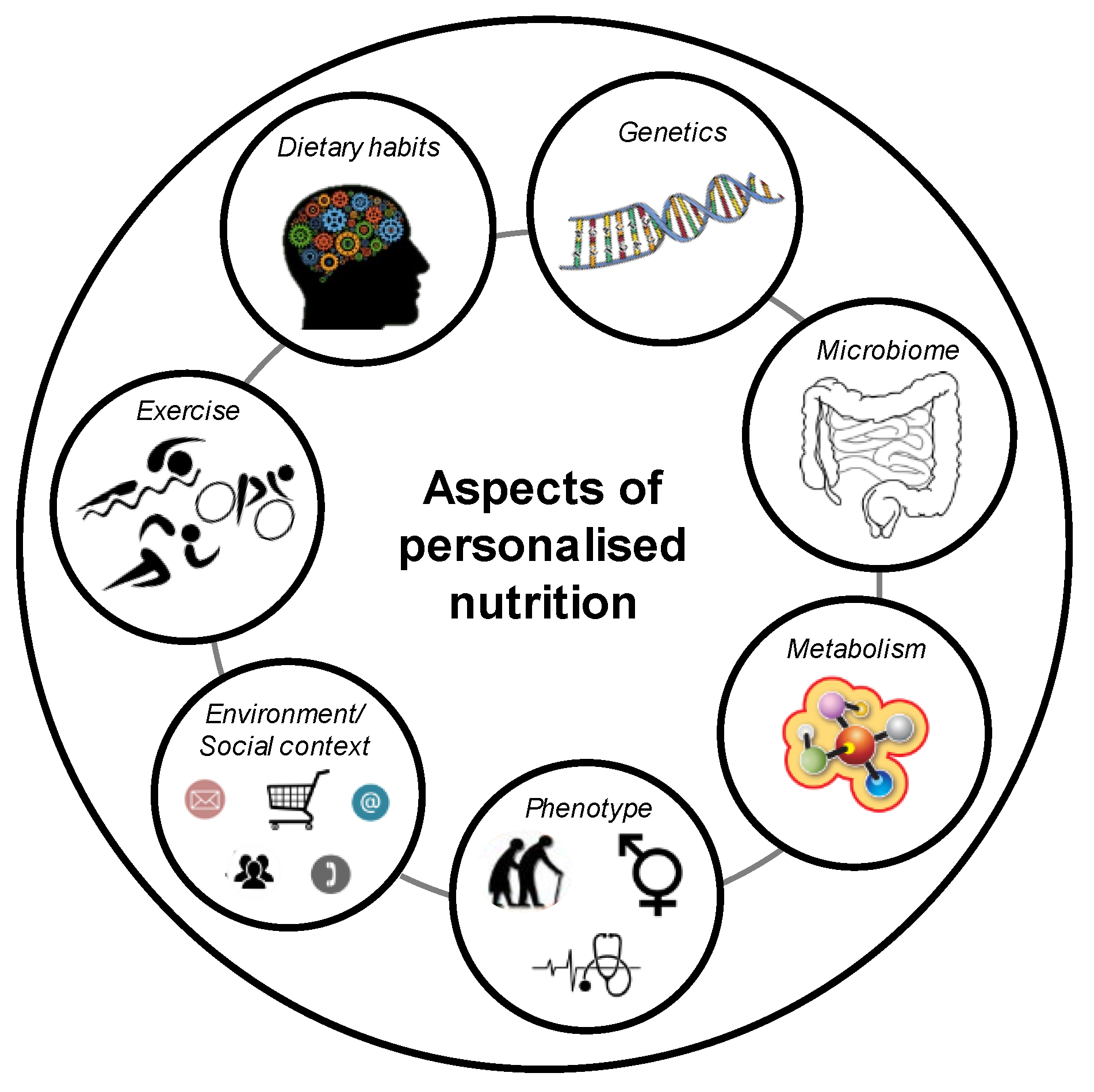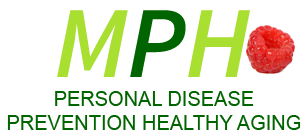Personal health
WHO has developed the definition of human health as a state of complete physical, mental and social well-being and not merely the absence of disease or infirmity. Health preservation and disease prevention are central objectives for establishing a healthy lifestyle and nutrition.
In parallel, healthcare has changed from focusing on intervention after the observation of the development of symptoms of diseases to a preventive, personalised health care and the use of markers which indicate the development of pathologies that allow intervention already before the development of symptoms. The need for a preventive, personal healthcare has been seen since the seventies of the last century (Merchant, 1978)
Salutogenesis
This development was also reflected by an upcoming understanding of salutogenesis, a health approach focusing on factors that support human health and well-being, rather than on factors that cause disease (pathogenesis). More specifically, the “salutogenic model is concerned with the relationship between health, stress, and coping” (Lindström & Eriksson, 2005) and strongly relates to nutrition, dealing with challenges to healthy eating in a health-promoting manner (Swan et al., 2015).
Markers
Preventive personal health care needs the development of analytical methods and markers for upcoming diseases as well as products for prevention which address the results from analytical concepts.
Changes of lifestyle and nutrition regimes as well as functional foods or nutraceuticals are a possibility to address these expectations. However, the area of nutraceuticals, phytoceuticals, food additives, functional foods, dietary foods, and medicinal foods is highly diverse in regional regulations and standard setting which complicates science-based developments in this area. Also, in the present paper often terms in this area are overlapping.
Precision medicine and precision nutrition
The medical field precision medicine is an emerging approach for disease treatment and prevention that considers individual variability in genes, environment, and lifestyle for each person. This approach will allow doctors and researchers to predict more accurately which treatment and prevention strategies for a particular disease will work in which group of people.
Also, in the area of nutrition the term precision nutrition is evolving where tools of nutrigenetic, nutriepigenetics, metabolomics or the analysis of microbiota is used to design personalised diets or selection of functional foods for health preservation.
Ways of intervention and prevention followed the concept of healthy aging (Woo, 2017) and later in economically relevant aspects of longevity claiming that there is no limit to longevity, reviving the human lifespan debate (Dolgin, 2018)
Healthy aging, lifespan
The meaning and objectives of healthy aging, decelerated aging or longevity need a better common understanding as longevity research is often seen with the goal of the principle increase of lifespan. In contrast, e.g. the American Federation of Aging Research defined as primary (composite) endpoints “the incidence of any one of several age-related diseases: myocardial infarction, congestive heart failure, stroke, most cancers, dementia, and death”, (but not diabetes) (S B Kritchevsky & Espeland, 2018).
Interventions for healthy aging comprise ways of the adaptation of lifestyle, exercise, caloric restriction, nutrition, and functional foods.



